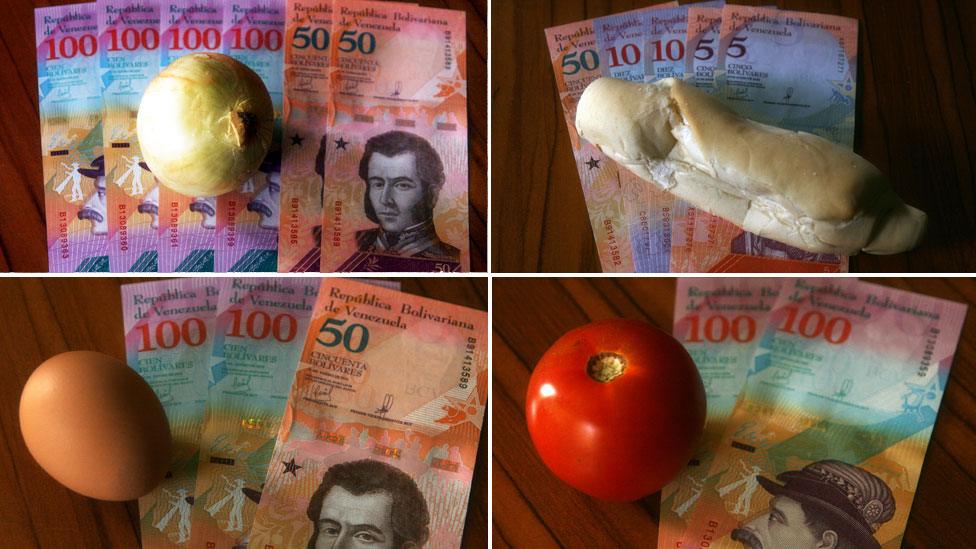Venezuela's Maduro thanks military for defeating 'coup'
- Published
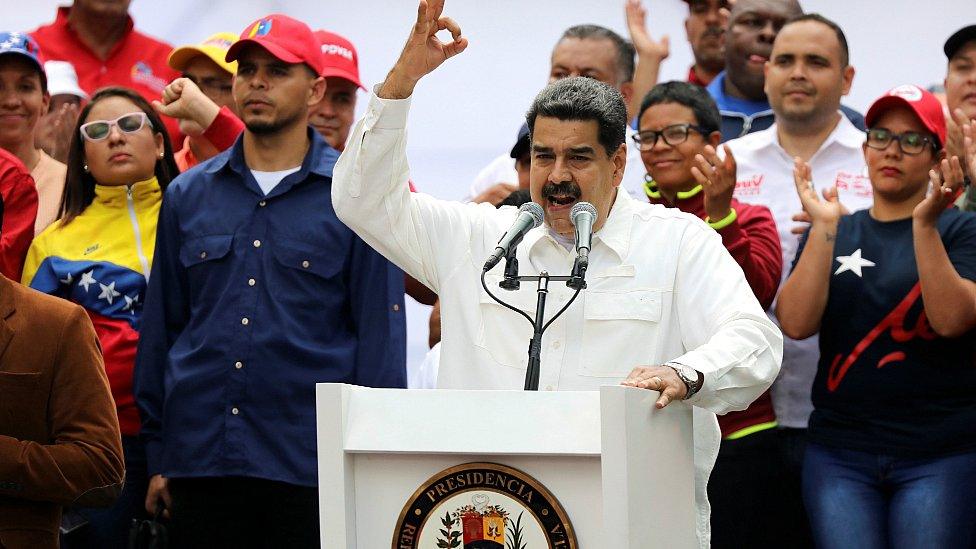
President Maduro told supporters to celebrate "anti-imperialism day"
Venezuela's President Nicolás Maduro has praised the armed forces for staying loyal to him and defeating a "coup" led by the US and opposition leader Juan Guaidó.
During a rally, Mr Maduro also blamed Venezuela's widespread power cuts on "cyber attacks" by the opposition.
His remarks came during a day of protests in the country by pro-government and opposition groups.
In the capital Caracas, some supporters of Mr Guaidó scuffled with police.
Mr Maduro has retained the support of the military and close allies including Russia and China since Mr Guaidó declared himself interim president on 23 January.
What is the latest?
Speaking outside the Miraflores presidential palace, Mr Maduro referred to Mr Guaidó as "a clown and a puppet" of the US.
"They invited the armed forces to carry out a military coup and their reply was clear - they have defeated the coup plotters," he said.
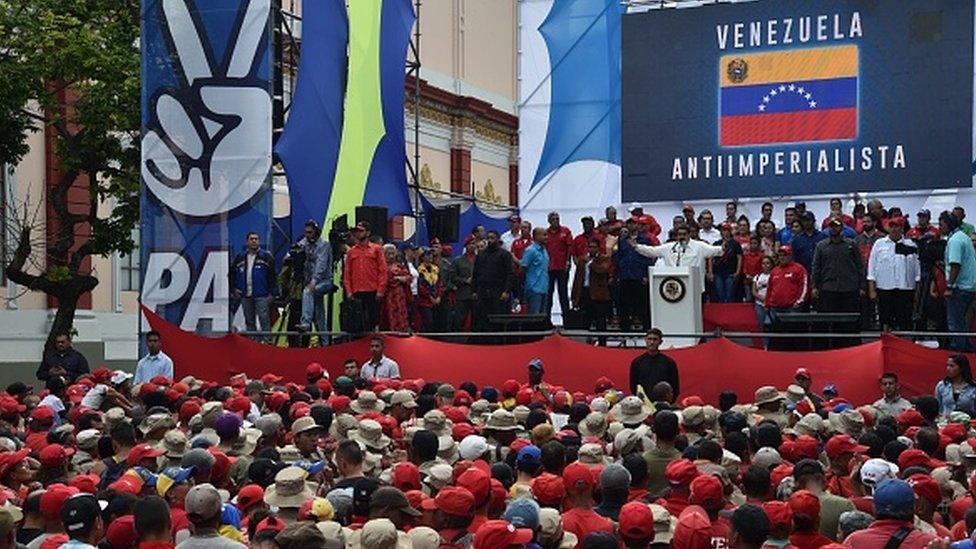
President Maduro has repeatedly accused Mr Guaidó of trying to mount a coup against him with the help of "US imperialists"
Meanwhile, police were out in force during an opposition march in the city.
Some protesters pushed against police in riot gear shouting "murderers" and officers responded by firing pepper spray at them.
Protesters tried to push back lines of riot police in Caracas
Addressing the rally, Mr Guaidó announced he would embark on a tour of the country and summon all his supporters to attend a mass protest in Caracas "very soon".
"We are going to come, all of Venezuela to Caracas, because we need all of them united," he said.
Mr Guaidó, who leads the opposition-controlled National Assembly, has been recognised as interim president by more than 50 countries.
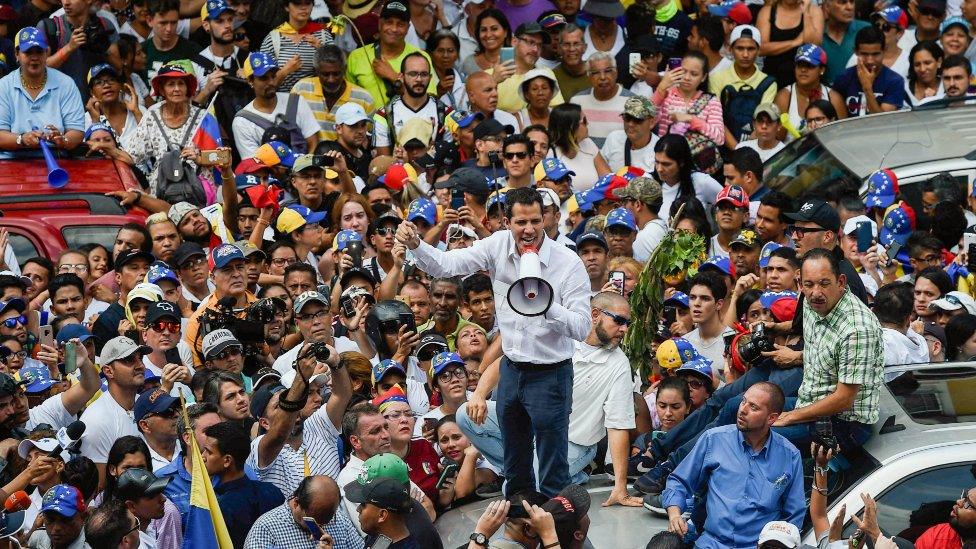
Juan Guaidó told supporters to keep up pressure on the government
What's the background?
President Maduro has repeatedly accused Mr Guaidó of trying to mount a coup against him with the help of "US imperialists".
Mr Maduro took over the presidency when his late mentor Hugo Chavez died in 2013. In recent years Venezuela has experienced economic collapse, with severe food shortages and inflation reaching at least 800,000% last year.
The Maduro government is becoming increasingly isolated as more and more countries blame it for the economic crisis, which has prompted more than three million people to leave Venezuela.

Plunged back into darkness
By Will Grant, BBC News, Caracas
At the end of what had been one of Venezuela's more fraught days of the recent period of political upheaval, the lights went out again. Caracas was plunged back into darkness with the vast majority of the city still without power. Issues are being reported from other cities elsewhere in the country too.
President Maduro had used his demonstration to thank the military for their role in holding off what he described as an attempted coup as he continued to insist the blackout is part of a US plan for his downfall. Elsewhere, supporters of Mr Guaidó cited the power cut as just one of the reasons they want him gone, and soon.
Yet that is unlikely to happen overnight, even with widespread blackouts across the country. For now, Mr Guaidó intends to travel the nation to drum up support and then hold another huge march in Caracas. Ahead may lie more demonstrations, more attempts to bring in humanitarian aid against the government's will, more potential for clashes.
In the meantime, Venezuela is fast becoming ungovernable, with two men claiming legitimacy as president and a population caught in the middle, growing increasingly desperate for the return of electricity and basic services.

What happened with the power cuts?
The widespread power cuts since Thursday have reportedly been caused by problems at the Guri hydroelectric plant in Bolivar state - one of the largest such facilities in Latin America.
A fresh blackout struck on Saturday, El Nacional newspaper reported, cutting power to many areas where it had previously been restored.
In Caracas, traffic lights in some areas were back in action but the city's metro remained closed, reports said.
Venezuela depends on its vast hydroelectric infrastructure, rather than its oil reserves, for its domestic electricity supply. But decades of underinvestment have damaged the major dams, and sporadic blackouts are commonplace.
Much of the country, including Caracas, was plunged into darkness
President Maduro said on Saturday that electrical substations had been under cyber attack with "the support and assistance of the US".
He told supporters that almost 70% of power had been restored but at midday there was another "attack at one of the generators that was working perfectly and that disturbed and undid everything we had achieved."
"We have evidence and they will be held accountable," the Venezuelan premier added.
"We will also introduce new measures to protect our electrical system from hackers."
Mr Guaidó has blamed the blackouts on years of under-investment.
On Friday, some hospitals saw chaotic scenes as relatives tried to move patients in the dark to other medical facilities with emergency power generators.
In Caracas's University Hospital, 25-year-old patient Marielsi Aray died after her respirator stopped working.
"The doctors tried to help her by pumping manually, they did everything they could, but with no electricity, what were they to do?" said her uncle Jose Lugo.
Generators at a Caracas children's hospital failed, with staff reportedly working overnight using their mobile phones for light.
- Published9 March 2019
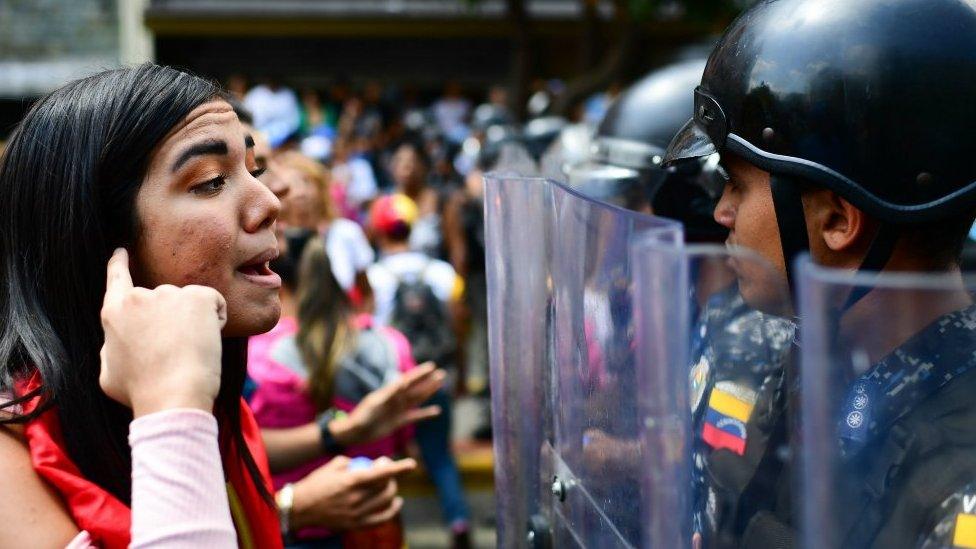
- Published9 March 2019
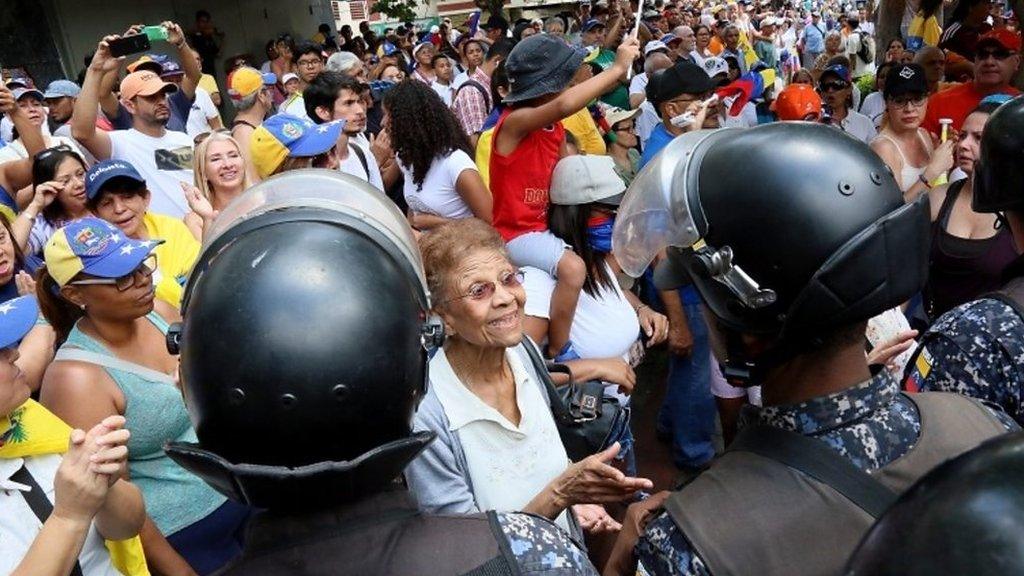
- Published8 March 2019
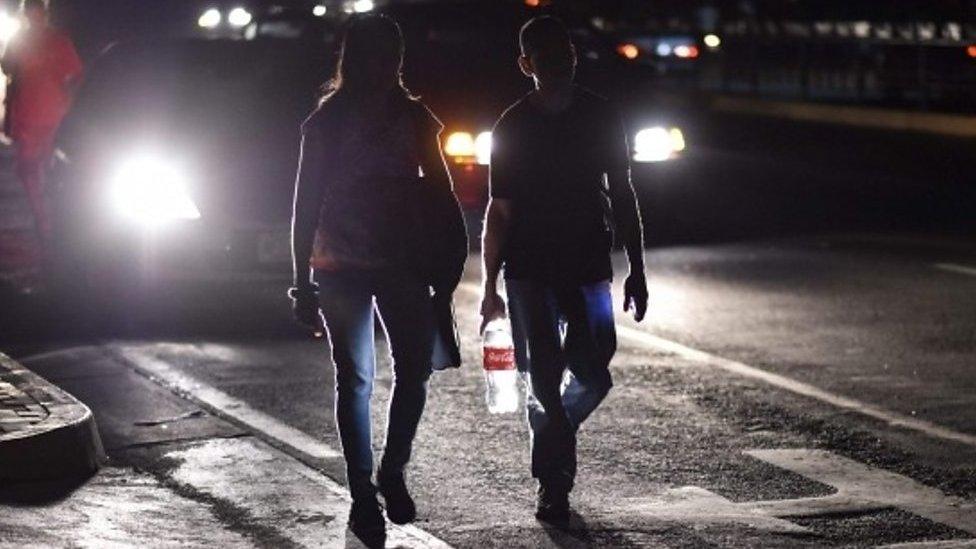
- Published9 March 2019
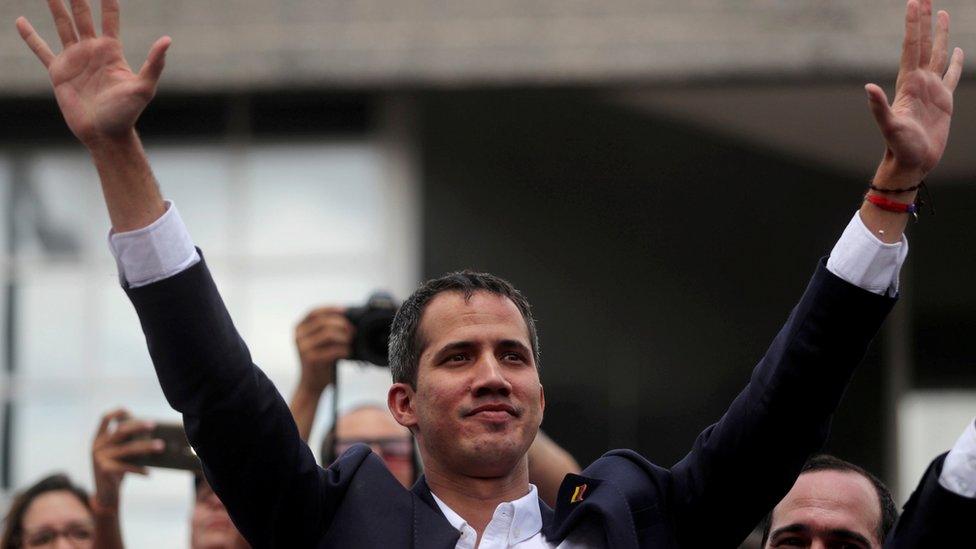
- Published4 February 2019
